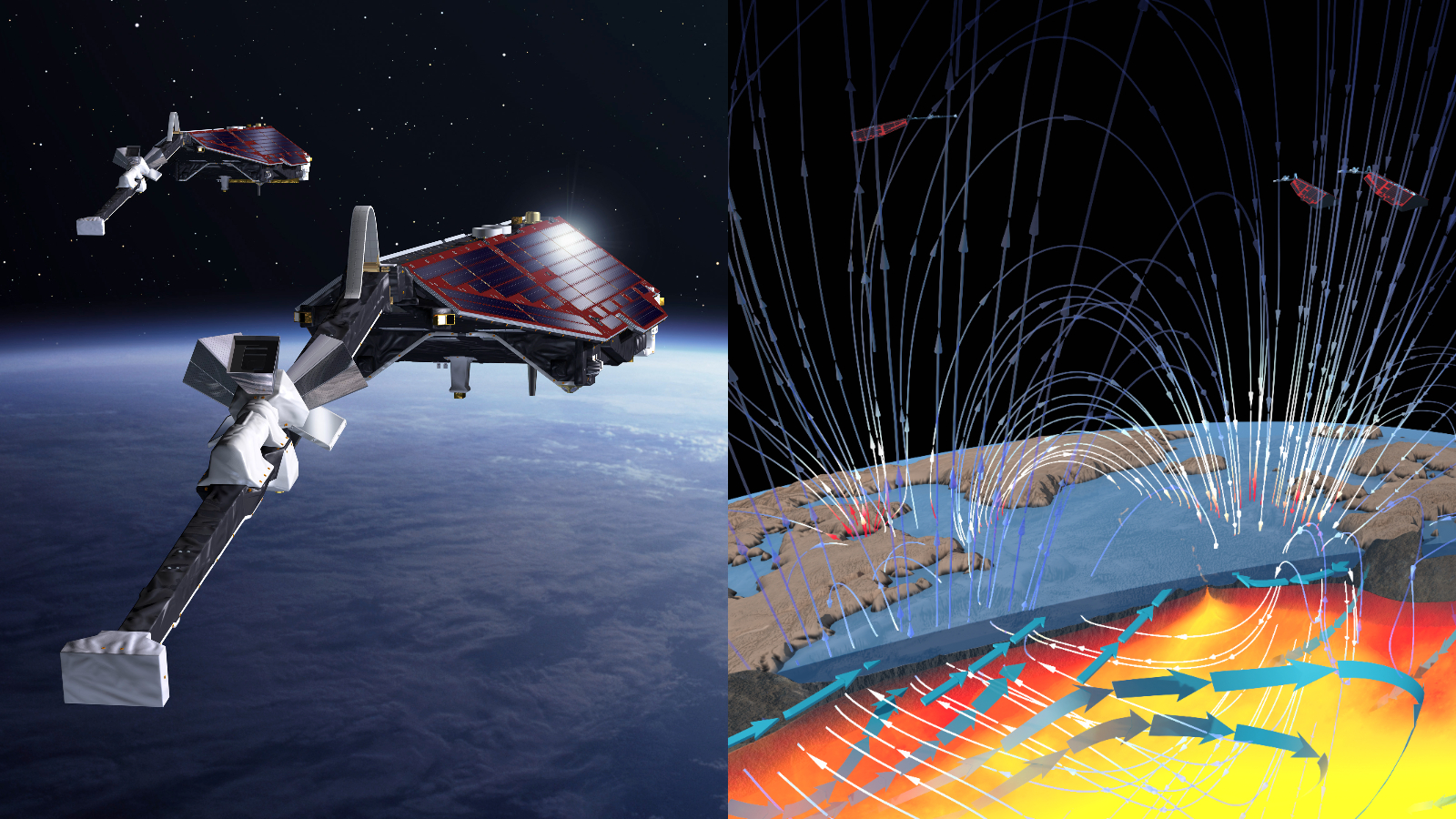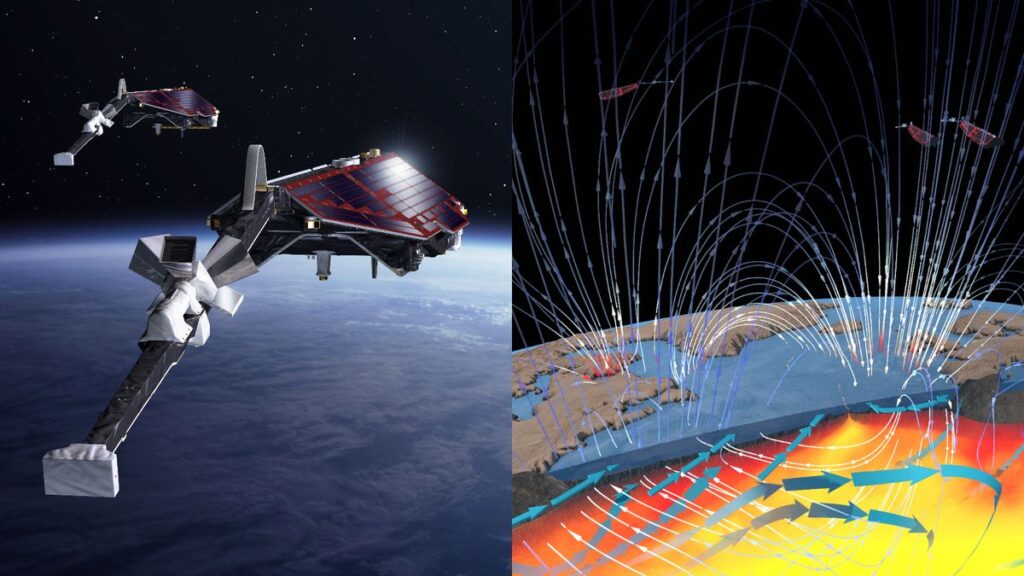
Scientists have captured magnetic signatures from Earth’s ocean tides in the finest detail yet.
These faint signals, which certain satellites can detect when flying at very low orbits, may hold clues about magma distribution beneath the seabed, according to a statement from the European Space Agency (ESA).
As seawater ripples over our planet’s magnetic field, it generates weak electric currents that in turn produce magnetic signals detectable from space. In a new study, published Dec. 2, 2024 in the journal Philosophical Transactions of the Royal Society A, researchers deciphered these signals using data from ESA’s ongoing Swarm mission, which comprises three satellites that measure Earth’s magnetic field.
“These are among the smallest signals detected by the Swarm mission so far,” study lead author Alexander Grayver, a geophysist and senior lecturer at the University of Cologne in Germany, said in the statement.
Earth’s magnetic field results from a swirling sea of electrically charged molten iron in the planet’s outer core. Heat currents and Earth’s spin both fuel the movement of this liquid iron. The core’s movement creates a giant, bipolar envelope that extends into space, shielding us from cosmic radiation and charged particles emitted by the sun.
Related: Listen to haunting sounds of Earth’s magnetic field flipping 41,000 years ago in eerie new animation
Swarm launched in 2013 and has been collecting information about Earth’s magnetic field ever since. But clear signals created by ocean tides are difficult to obtain, because they are so faint they hardly ever break through the widespread “noise” in space, according to the statement.
In the late 2010s, several factors aligned that enabled Swarm to record the magnetic signatures of ocean tides in unprecedented detail. One of these factors was a dramatic reduction in the sun’s activity, and another was the closeness of Swarm satellites to Earth.
“The data are particularly good because they were gathered during a period of solar minimum, when there was less noise due to space weather,” Grayver said.
The sun follows a roughly 11-year cycle that dictates the level of activity at its surface. At the solar maximum, the sun emits huge waves of electromagnetic radiation and charged particles that obscure measurements of magnetic signals from Earth. Activity dies down during the solar minimum, making it easier for satellites to pick up these signals.
ESA initially planned to end the Swarm mission in 2017, but its valuable results prompted the agency to extend it. Over the years, drag has pulled the satellites closer to Earth, enabling the instruments on board to pick up faint signals that they could not have detected in their original, higher orbits.
“This is one of the benefits of flying missions for longer than originally planned, Anja Strømme, ESA’s Swarm mission manager, said in the statement. “You can tackle scientific questions that weren’t originally envisaged.”
The new study shows that satellites can peer through the depths of Earth’s oceans and extract useful information, Strømme said.
Swarm could stay operational until 2030, when the next solar minimum is due. Scientists hope that this will provide another rare opportunity to detect hidden ocean signals.
